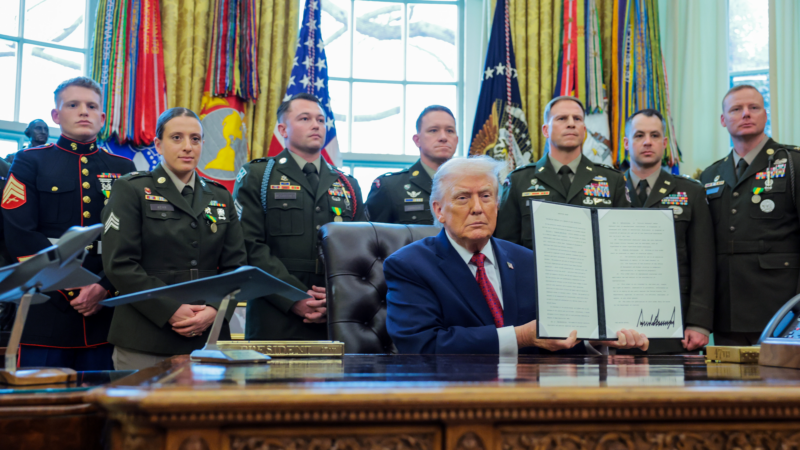White House agrees to keep migrants in Djibouti for now, blasts federal judge’s ruling
The White House has announced that a flight with eight immigrants which was reportedly heading to South Sudan will instead remain in the East African country of Djibouti for at least two weeks, in order to comply with a federal court order.
The migrants are from Myanmar, Laos, Vietnam, Cuba and South Sudan. Earlier this week, they were placed on a deportation flight out of Texas. Lawyers representing the eight migrants were told they were being sent to South Sudan, but the Department of Homeland Security declined to confirm the final destination of the flight. “Let’s be clear,” attorney Jonathan Ryan, who represents one of the migrants on that flight, told NPR, “my client has disappeared. I do not know where my client is.”
In a hearing in Boston on Wednesday, federal Judge Brian E. Murphy of the U.S. District Court in Massachusetts said the Trump administration was in violation of his injunction which prevents people from being deported to countries other than their own without a chance to challenge their deportation order. They must also be given notice in their native language.
Judge Murphy ordered that the individuals be given at least 15 days to challenge their deportation.
The White House has said the migrants in question are violent criminals. Documents provided by D.H.S showed that the men had been convicted of crimes including murder, sexual assault and robbery.
During a briefing earlier today, White House Press Secretary Karoline Leavitt confirmed that the deported immigrants will stay in Djibouti for two weeks. She also accused Murphy of undermining U.S. diplomatic relationships and national security. “Judge Murphy is forcing federal officials to remain in Djibouti for over two weeks threatening our U.S. diplomatic relationships with countries around the world and putting the agents’ lives in danger by having to be with these illegal murderers, criminals and rapists.”
The Government must now give the deportees what’s known as “reasonable fear” interviews, in order to assess whether they are entitled to stay in the U.S. due to risk of persecution or torture in the country they are being sent to. If they express a fear, they must get at least two weeks to contest their deportation to a third country.
Murphy did not rule out holding the Trump administration in contempt of court for violating his initial order, but said that would be left for a later time.
Questions about U.S. authority over migrants deported to other countries have arisen in several other high-profile immigration cases, raising questions about the limits of judicial authority.
Meanwhile, the Trump administration has been negotiating with several other countries to accept people being deported from the U.S.
If you have immigration tips you can contact our tip line, on Whatsapp and Signal: 202-713-6697 or reporter Jasmine Garsd: [email protected]
His brother’s mental illness isolated his family. Now he’s helping other caregivers
When it comes to serious mental illness, family caregivers are crucial partners. But often, they must fend for themselves. A new solution offers them support.
Out with the mayo: How Ukrainians reclaim holiday food
For many people from former Soviet countries, New Year's is a big holiday feast time. A Ukrainian restaurant in Washington gives NPR a taste of what's on the menu.
50 wonderful things from 2025
Each year, critic Linda Holmes looks back on the year and compiles a list of the things that brought her joy.
Farmers are about to pay a lot more for health insurance
Tariffs, inflation, and other federal policies have battered U.S. farmers' bottom lines. Now many farmers say the expiration of federal health care subsidies will make their coverage unaffordable.
Why do we make New Year’s resolutions? A brief history of a long tradition
One of the earliest mentions of New Year's resolutions appeared in a Boston newspaper in 1813. But the practice itself can be traced back to the Babylonians.
In one year, Trump pivots fentanyl response from public health to drug war
Experts say Biden's focus on addiction health care saved tens of thousands of lives and slowed fentanyl smuggling. Trump scrapped Biden's approach in favor of military strikes.






